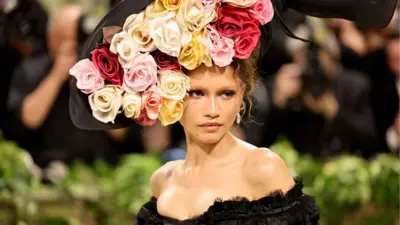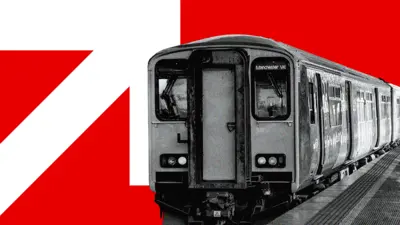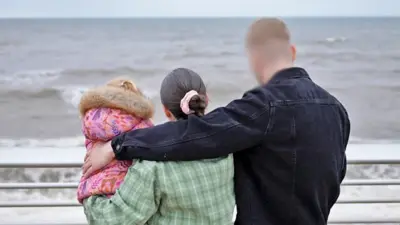We've updated our Privacy and Cookies Policy
We've made some important changes to our Privacy and Cookies Policy and we want you to know what this means for you and your data.
Iceland's fishing industry 'better off outside' EU
- By Claire Marshall
- BBC Environment Correspondent
Image source, Claire Marshall
Iceland's fishing minister has said the country would "never join the European Union" because the country is thriving outside.
The country applied to join the EU in 2009, but dropped the application last year.
A key factor, said Gunnar Bragi Sveinsson, was the desire to retain control over fishing grounds.
The nation now has one of the most modern and productive fishing industries in the world.
However, while bigger companies on the island are flourishing, the small-scale fleet is shrinking. Some fear traditional fishing methods may die out altogether.
In an office overlooking the factory floor of Visir Fisheries in Grindavik in south-western Iceland, computer-generated images of cod fillets glide across a computer screen.
This is one of the most advanced fish processing factories in the world. The workers tend to a machine that sizes up each fish and slices it with a laser-accurate water jet. It can produce one perfectly shaped fillet each second.
Manager Johann Helgason points at one of the pale shapes passing by on his screen. "That's a pin bone." The robot will make sure it goes back for the tiny offender - just a few millimetres long - to be removed.
"The standardisation of the portions is more or less perfect," Mr Helgason says. "It maximises the value of each single piece that goes through."
Many of these flawless fillets will end up being eaten in the UK. Iceland's biggest market is Europe and inside the EU the largest market is Britain.
All parts of the fish are used. "Our goal is to increase the value of those by-products," says Mr Helgason. "We are using biotechnology to try to find materials in the fish skin or the eye, or the head - like enzymes or collagen. We want to go more into pharmaceutical or food supplements."
This £30m factory is at the cutting-edge of fish processing. Would they be in this position if Iceland were within the EU? Mr Helgason is sceptical.
"We have full control of the industry here in Iceland. We decide the catch and the rules. This makes us very quick to react if something needs to change, which is why we are very competitive."
Iceland forms part of the European Economic Area along with Norway and Lichtenstein. They get market access for fewer obligations: Iceland has to take in 15-20% of EU rules into its own legal framework.
Mr Helgason does not feel that Visir would gain much from being in Europe. "We are completely independent. It's up to us who we want to deal with and what kind of relationship we have with each country. This gives us an advantage."
The fishing industry is based on a quota system.
To keep fish stocks sustainable and protect the marine ecosystem, scientists from the Icelandic Marine Research Institute continually monitor Icelandic waters and provide this data to the government.
This guidance is followed to help set limits on the amount of fish that can be caught.
As under the Common Fisheries Policy, this quota can be bought and sold.
'Life outside the EU'
The Fisheries Ministry is the most powerful department in the Icelandic government. Dressed in an impeccable suit Minister Gunnar Bragi Sveinsson sits at a polished circular table in his office overlooking Reykjavik harbour.
He is blunt.
"I would never join the European Union," he says. "There is a life outside it, as we have proven. We have one of the biggest and one of the strongest fisheries in the world that is sustainable without any subsidies from the state.
"We don't have to share this decision-making with anyone else. It would be difficult for Icelanders to control their economic and fisheries sector having the obligation to discuss it with 27 or 28 other countries."
The 10 biggest families in Iceland control 50-60% of the quota.
Gunnar Tomasson is director of another fishing giant: Thorfish. He stands on the harbour wall watching 25,000 tonnes of fish being unloaded from one of his ships after a five day-trip.
"Today the fishing stocks are sustainable and we are controlling them very well. But inside the European Union, it is totally the other way around. They are not controlling it; they are overfishing their stocks and they are even paying subsidies to their industry. We do not want to go into the European Union."
Smaller boats are struggling
However, the fact that Iceland is in charge of its own fish stocks does not mean that all fishermen are happy with the system.
There is criticism of the centralisation of power: the fact that a large company can own a factory, own a vessel and also own the quota.
One industry insider who did not want to be named likens this to a "mafia".
Since 1984, the number of people working in the industry has gone down by half. Smaller boats are struggling - just as they are in the UK.
In Sandgerdi, Halldor Armannsson and his 80-year-old father heave a tub of frozen mackerel and squid from an ancient freezer hut across a cracked patio and into a rundown shed. The bait is hacked up and pressed down on hooks attached to long lines that will run behind their boat.
This family has been fishing these Arctic waters in this way for 400 years. Currently, their business supports five families.
Mr Armannsson could be better protected under European rules. Reforms to the Common Fisheries policy mean these businesses - with their sustainable fishing methods - should be prioritised when quota is handed out.
Mr Armannsson says: "The small fishermen are dying out. Three years ago, we had about 600 boats line- and hook-fishing. Now, we have just 200. The bigger boats buy the quota and once it is lost they can't get it back. The smaller fleet just can't compete."
He says that people have to move to where the large fish factories are and so fishing in the smaller Icelandic villages is dying out.
"The control of the fisheries is what I am afraid of. I don't see how the government is putting younger people into this industry."
However, the globalisation of the Icelandic fishing industry is picking up speed. The Asian market is growing. A delegation from China arrives to look around the Visir factory and moves on to inspect the scientific research vessel moored in Reykjavik harbour.
Hjortur Gislason who has reported on the fishing industry for decades says: "Of course, the quota system means that fishing rights accumulate into fewer hands, but when you want to run an industry that contributes to your economy then that's the way you do it. The fishing fleet is paying huge amounts of money to the state for fishing rights and this is contributing to the people in Iceland.
"There will never be peace in fisheries management because there is not enough for everybody."
Top Stories
Features & Analysis
Most read
Content is not available








